On this page, we compile the most recent farm safety news bulletins affecting farm workers and labourers in the UK. We will be updating this section, so feel free to check back regularly for any potential updates.
We are a leading supplier of relief and contract personnel in Britain, helping dairy farms keep up with demand. Contact us today on 01722 323 546 with any enquiries.
It’s good to talk:- and sharing our experiences is a common reality of human existence. Not only do we like to talk about what has happened to us, we like to listen to how other people have reacted in similar situations.
Sharing our farm safety experiences should be no different. Just as everyone has a different approach to certain tasks, so too can we learn about ways to improve our on-farm health and safety by hearing of other's methods.

Sharing 'near misses' and lessons learned is also a useful way to help each other learn by our mistakes and ensure improved safety. Proactively talking about farm safety will keep it fresh in everyone’s mind and make it the normality to Think & Plan before Acting and ensure safety procedures are being followed.
With the launch of HSE's - 'Work Right Agriculture. Your Farm. Your Future' Campaign and the focus on transport risks, the statistically most common cause of fatalities and serious injuries across farms, there are a variety of podcasts available to listen to that promotes the farm safety message and gives examples of scenarios where it’s easy to make mistakes and take short cuts, and discusses the simple safety procedures that everybody should just get in the habit of doing, such as 'Safe Stop'.
In this new podcast, HSE agriculture sector lead Adrian Hodkinson and Eve Macready-Jones, from HSE’s agricultural policy team talk to Farmers Guardian’s news team about the launch of the Work Right Agriculture ‘Your farm. Your future’ campaign, detailing simple steps you can take today to help keep you and everyone on your farm safe.
Check out the Farmer Guardian's podcast 'Over the Farm Gate' episode here.
In launching the Work Right Agriculture campaign this month, HSE have also released a podcast on Transport Safety with HSE’s Agriculture Sector Lead, Adrian Hodkinson, and is joined by safety instructor and farmer, Brian Rees; to discuss some of the most common issues they see on farms, and what small changes farmers can make to protect themselves, their families, workers, and livelihoods.
You can access a full transcript by clicking here, which is available for streaming, downloading, or reading. Additionally, the full podcast is also available.

We all know the importance of training to help increase awareness of risks, teach us how to use work equipment or carry out a job safely and it's particularly important for new members of staff or when you are carrying out a work activity for the first time.
However not everyone thinks about refresher training - but it's well known that even the most experienced person can become complacent or take shortcuts particularly when you are rushing to get the job done.
You can also become familiar with your workplace and begin to not notice or accept hazards that you navigate as part of your daily routine - not necessarily identifying that things could be improved to reduce the risk of accidents.
This is why refresher health and safety training can be important to help refocus and raise awareness of the hazards that are in your workplace and how you can reduce or manage them.
Farmers Weekly has a useful online farm safety CPD course covering key farming safety topics such as Work at Height, Child Safety, and Farm and Vehicle Safety. Each topic has course information notes and a short quiz at the end.
Why not use them to raise health and safety awareness at the time and use prior to carrying out a risk assessment review. Even better, LKL offers a Farm Safety Awareness course delivered by our Regional Manager and Trainer, James Picot.
For more information contact James (james.picot@lkl-services.co.uk) or your Regional Manager.
Farm Safety Partnership is looking to raise the awareness of good health and safety standards and safe system of work for two important safety topics in the first half of the year and these cover:-
Safety in cattle handling and Children's Safety on the farm.
The April Newsletter Safety Note covered both these topics and provided some safety tips which you can discuss with your farm team.
The Farm Safety Partnership are also running some webinars with guest speakers to help raise awareness.
You can access the first FSP webinar on Safe Cattle handling here:-
Being struck by or run over by farm machinery or visiting vehicles is the biggest single cause of children being killed on farms. Accidents most frequently reported in the UK involve falling from tractors and ATVs or quad bikes. But danger lurks everywhere! Year after year, we hear of tragedies involving children on farms drowning or being asphyxiated; being crushed; hit by falling objects or collapsing stacks and injured by animals. Most adults think that children have a good understanding of some of the hazards on the farm - but at a young age its just an adventure playground and they are fearless and they need educating on the risks - just like when we are teaching them crossing the road.
Alma Jordan who set up Agri kids has set up Farm Safe schools project and has been delivering Farm safety presentations to children of different ages at schools around Ireland and has recently been delivering them as Webinars.
See the following links for more information.
https://farmsafeschools.ie/webinars
Farm Safe Schools: Module 2 JNR
With almost 60% of Farming staff, that took part in last years Farmers Weekly H&S Survey, stating that they sometimes knowingly took a safety risk when they shouldn’t have done - we are encouraging you not to rush in to get a job done but to:- Stop and Take 10 (mins).
Take 10 minutes to reflect and carry out a ‘dynamic’ risk assessment.
We’ve all been on Farm where staff have talked about when they took a safety short cut that put them at risk of injury and somehow got away with it and lived to tell the tale.
It's natural human nature to think you are invincible - but may farmers know of friends, colleagues and sometimes family who have suffered an injury or worse still are aware of a fatality that occurred on a farm.
The Farmers Weekly H&S Survey 2021 - also identified that Farming staff thought that the biggest cause of accidents was due to “lack of time or rushing to get the job done”, followed closely by “tiredness and fatigue”.
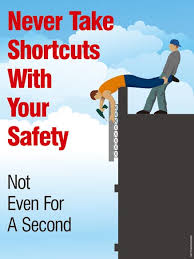
Hence the message to Stop and Take 10
Don’t rush in – stop and ask questions – the quickest way to do a job is to do it right first time.
Don’t forget to ask questions and plan the work:-
Health and safety risk assessments should be in place for frequently carried out work activities and known seasonal activities such as annual maintenance - however there can be situations where something occurs and a job needs to be done such as dealing with equipment failure or some other immediate situation - then a dynamic risk assessment situation might then occur.
Your experience and knowledge should enable you to evaluate the risks for one off events.

Its important to develop a Safety culture way of thinking on farm and move away from any risk taking.

Remember the most important thing on the Farm is not the machinery - it is the people that run it - it can't run without you.
Farmers Weekly Farm Safety survey October 2021 - identified that more than 50% of farmers occasionally took risks when they knew they shouldn't and Farmers felt that a big contributing factor to farm accidents was rushing or fatigue.
Remind each other to :-
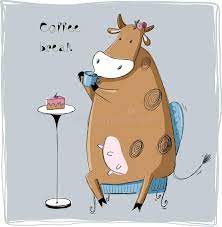


LKL recently learnt of the changes to the Red Tractors Assurance Scheme's Health and Safety Section.
It now requires all Farm Businesses regardless of worker numbers to have a written document of the Health and Safety Policy and Arrangements. Previously the legislation has only required a companies' Health and Safety Policy document to be written down if they had 5 or more workers as long as it was communicated to the workers in some form.
There is some guidance for writing these documents out there on the HSE website and other forms but we at LKL recognised that this could be challenging for some Farm Businesses to start recording. Our Health and Safety Advisor has therefore provided a working Health and Safety Policy template for you to use and adapt to reflect what is in place on your farm.
Any Health and Safety Policy document should have 3 sections:
To use the template make sure you read each section to see if it reflects what you have in place on your farm and adapt it to reflect your farm business. In some sections you can tick what you have in place or add or delete sections. There is legislation that requires you to manage risks from work at height or manual handling and use of chemicals so these are included in the health and safety arrangements and you should adapt them to what you do.
You may have to consider further safety arrangements that you have in place e.g. for managing risks of vehicles around the farm or cattle handling.
You can find the Health and Safety Policy template here.

HSE has yet to report the accident statistics for the last 12 months - but sadly the number of fatalities reported on farm are expected to be almost double that of last year.
Many of the causes of the accidents are all too familiar and include falling during work at height, struck by a moving vehicle or crushed by a vehicle or machine or fatality injured by cattle.
So, therefore, we mustn't become complacent and always strive for best practice.
This month in the newsletter I have encouraged everyone to be their own 'Health and Safety champion' - We all have a responsibility to look after our own and others health and safety to the best of our ability and not cut corners. If you spot a hazard and can't put it right yourself - then raise it with someone who can and let everyone else in the team know where the hazard is.
See the newsletter article here.

The Farm Safety Foundation in their campaign are encouraging everyone who works on farm to 'Take a moment' to stop and think about safety - and encourages everyone to do one thing to improve health and safety on the farm.
Here are some examples:

For more telehandler information and understanding your legal requirements see this article on Farmers weekly- Tips to stay on the right side of telehandler law - Farmers Weekly
NFU produced a leaflet on slips and trips: Safety Focus and Trips - NFU
There is still a long way to go to reduce the accident and fatality statistics on farms and so it's important to continue talking about what you can do to improve health and safety on your farm and give it the time and attention it deserves.
By continuing to give it a high profile and keep the communication going for reporting hazards and near misses, reminders to each other to carry out pre use checks of equipment or ensure you and your colleagues wear your PPE and keep workplaces tidy - it will begin to set the wheels in motion for continuing improvements in the right direction - one step at a time.
Silage making season has started and there is a rush to get the grass in before the weather breaks again. It can be one of the hazardous operations due to risks of falls from height, overturning vehicles, risks of vehicle and pedestrian collision and machinery hazards. Long working hours and fatigue and inexperienced operators can increase risk so it's important to plan and prepare and advise the team on safe working practices.
Below are some reminders to ensure that the work is carried out safely.



As we come out of lockdown, we are all realising that the world looks a bit different and we still have a long way to go to get back to 'normal'.
It certainly has been a long and, at times, cold and tough few months, but the good news is that spring is here. As we enjoy longer, brighter days, now could be the perfect time to invest in your own wellbeing, whether that's exercise, meeting up with family and friends outdoors or spending the afternoon in a pub garden.
However, sometimes you may find that you need professional help. It can be good to speak to someone outside of your social group who may understand how you're feeling and be able to set you on the right track.
There is plenty of help available and many services that are ready to take your call today. Some of these services provide farming-specific assistance and understand the unique circumstances faced by farmers, while others have been set up to cover specific geographical regions.
In September 2020, the Farming Community Network (FCN) launched the Farmwell online support hub that aims to help farmers and their businesses stay strong. Charles Smith, FCN Chief Executive, said: “There is some really good information available to help farmers become more resilient, but this information is very rarely in one place and can often be difficult to access, especially if you are not in the right place mentally. This is where FarmWell can help.” You can find information about the resource here.
The site offers loads of advice, help and support to build both business and personal resilience. If you need to speak to someone, there is a helpline manned by FCN volunteers and a directory with lots of options of where you can get help. Below are some of the topics on the website:


The directory's aim is to bring together all national and regional support groups in one place, to provide advice and assistance to those who work in farming and rural industries. Regions span the country and include Cornwall, Suffolk, Norfolk, Cheshire, Yorkshire and the Wirral. More information can be found here.
YANA is a mental health charity whose mission is to provide rural mental health support. They provide free confidential counselling with trained professionals. A call to their helpline (0300 323 0400) can fast track you to access free sessions with trained counsellors who understand the pressures of farming and running a farm business.
Sometimes it's difficult to spot the signs of mental ill-health and it can be hard for people to open up and admit that they are struggling or that anything is wrong. You don't have to be a mental health professional to help a friend or colleague.
YANA has launched its helpline card - 7 Tractor Facts to Save a Life. Using the acronym TRACTOR, it takes you through 7 steps you can use if you are concerned about a friend or colleague to provide support and get them to access the help they need.
.jpg?time=1618909851286)
Here at LKL, people come first. Don't forget that your Regional Managers are available to talk to if you have any concerns. We can provide a good listening ear and help you find the support you need.
With discussions around the new COVID variants being around 40% more transmissible, it's still a good time to revisit previous COVID working risk assessments and control measures from last year and make sure staff are practising them.
Social distancing: This is the number one control measure on farms to prevent the transmission of respiratory diseases. It's important to see that it's achieved in various work areas around the farm to prevent symptomless staff from spreading COVID and other illnesses unknowingly to colleagues.
For small workspaces like parlours and offices, look at how people are spaced out to ensure 2m social distancing is maintained and decide on the maximum occupancy levels.
Stagger when your staff use small welfare spaces and offices to ensure social distancing is followed. Ventilate enclosed spaces regularly.
If you need to work together less than 2m apart, wear a face covering and try and work side by side rather than face to face. Keep the time frame short and less than 15 minutes where possible.
Here at LKL, we like the following sign as a reminder:

Hygiene: Keep up with your supplies of hand sanitiser in key areas, especially where there is shared equipment. Maintain supplies of soap and paper towel/blue roll in toilets and welfare areas. Provide hand sanitiser to vehicle cabs or small personal supplies to staff.
Remember, clean hands mean potentially less transmission on to equipment and hand contact surfaces. For certain jobs, disposable gloves will be worn for safety and hygiene already - don't forget to change them regularly.

In areas well away from welfare spaces, here is a homemade hand sanitiser station solution:

Cleaning: Where you have shared equipment used by lots of different people, provide cleaning materials such as virucide sprays and blue roll or wipes.
Encourage staff to wipe down shared equipment between uses such as kitchen equipment, vehicle cabs, etc.

Lockdown has given us more time to look at the areas of our lives we'd like to improve and it's more important than ever to be kind to ourselves and other people.
It can be difficult to think about self-care when there is so much to do around the farm, but it is very important for your physical and mental health.
Here are some things that you can be thinking about right now.
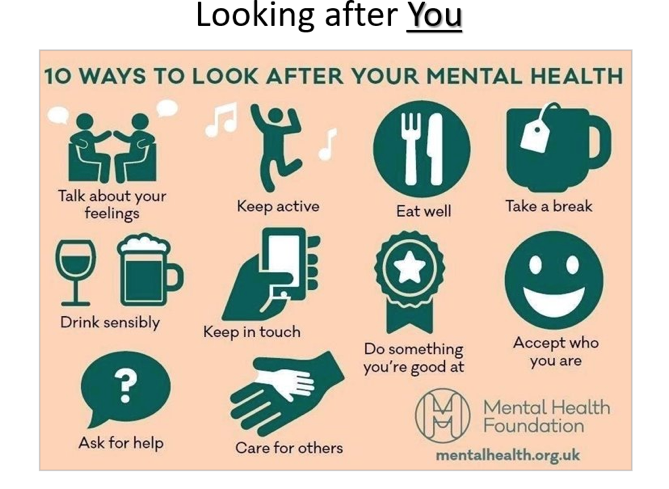
Research has shown that there are five areas of your life that you can focus on that improve your mental wellness and resilience. They are useful for everyone to practice, whether you are struggling with your mental health or not.
These are:

Why the five ways work:
• Connect: Strengthening relationships with others and feeling close to and valued by others, including at work, is critical to boosting wellbeing. During Lockdown, set up a time to speak to family, friends and colleagues via WhatsApp, Google Duo, Skype, etc. Regular connections really help. LKL Regional Managers are available on the phone if you need to talk to someone.
• Keep learning: Being curious and seeking out new experiences at work and in life positively stimulates the brain. During lockdown this can be more of a challenge, but trying anything new is good. For example, you could try a new recipe or do some baking, Get creative with your camera during your daily walks. Try Sudoku, learn some new music, do some Zoom online courses or revisit an old hobby you've not done for a while.
• Be active: Being physically active, including at work, improves your physical health, mood and wellbeing while helping to decrease stress, depression and anxiety. While herdsman and farmer step counts are usually pretty huge around the farm, it's still important to get out into nature and away from the farm on your days off. Take a socially distanced walk with a friend or colleague in the local area. Go for a run. Get on your bike. There are so many online exercise programmes available to try, e.g. kettles, HIIT or yoga. You could even set up a home gym. Why not set yourself a challenge, like the ''Couch to 5K”?
• Give: Carrying out acts of kindness, whether small or large, can increase happiness, life satisfaction and create a general sense of wellbeing. It's been found that looking outwards and supporting other people can benefit your own wellbeing and sense of purpose in so many ways. Take time to listen to a colleague over a brew. Offer to pick up a friend's shopping or send someone special a small gift or card. Do someone a good turn. Try and say a kind friendly word to a friend or colleague each day.
• Take notice: Paying more attention to the present moment, to thoughts and feelings and to the world around us boosts our wellbeing. Being outdoors gives you the chance to spot the signs of spring and take in the ancient trees and wildlife. Try meditation, where you practice focusing on your body and breathing exercises. Take time to enjoy the little things, for example focusing on the taste of your favourite foods and why you like them.
Regularly practising these five ways to mental wellness will be hugely beneficial to everyone.
We must be kind to ourselves and each other - we are not superhuman. It's okay to not be okay. The important thing is to recognise it and make some small changes to get back on track. Remember, it's good to talk.
If you or a colleague are struggling, please don't hesitate to pick up the phone to your Regional Manager.
See this mental wellbeing leaflet from Farm Safety Partnership and FCN for more information.
Check out the FCN Farmwell website for more information and resources on mental resilience.
The new service has two distinct sites - Qwell.io/rabi is for adults, while Kooth.com/rabi is specifically tailored to young persons age 11 to 17 years.
Both sites are free to use, open to all in the farming community in England and Wales and are anonymous and confidential. This is a RABI initiative to establish a wellbeing community for farmers and their families and works towards their 5-year goal to ensure that no farmer should ever face adversity alone.
It is important to invest time in yourself and your mental wellbeing. You are the farm's greatest asset and therefore it's important to look after yourself, especially during this particularly challenging time.
We know mental health concerns are likely to affect us all at one time or another. This service enables you to access a free, anonymous mental health wellbeing site from any device and provides support with specific farm-related issues and concerns. There is general and farm-specific content that addresses specific concerns, with discussion areas and messaging functions on the site.
As well as online content, you can also arrange for one-to-one counselling sessions. Sometimes, it is as simple as having a listening ear at the end of a phone.
The sites operate 24/7, with counsellors available from 12pm Monday to Friday and from 6pm to 10pm on weekends. Counsellors are BACP (British Association for Counselling and Psychotherapy) accredited.
Sessions can be pre-booked or on a drop-in basis.
Don't forget RABI's freephone helpline: 0808 281 9490
LKL Regional Managers are also happy to provide a listening ear and reassurance, and will support you in reaching out for professional help if you would like it.
It's with great pleasure that we can announce that LKL’s very own James Picot, Regional Manager and Trainer extraordinaire, is a winner of the RoSPA Health and Safety Influencer of the Year Award 2020.
Read the newsletter article here.
The Farm Safety Partnership annual Farm Safety week runs from 20th-24th July and encourages all farmers to raise the profile of safety during this week and see what safety improvements they can make on farm or maybe you've taken the opportunity during Lockdown to work on Farm Safety.
The NFU and Farm Safety Partnership are encouraging you to share your progress and ideas.
The NFU has been running some Farm Safety workshops since 2019 and has stated that it has seen a notable shift in attitudes to health and safety since then it also has set up a Farm Safety hub and has some helpful leaflets on its website (see links below)
The National Federation of Young Farmers Clubs is hoping that young farmers will take the lead during Farm Safety Week this year and have set up a competition for YFC members to share their ideas or safety improvements that they have made during lockdown on social media using #FarmSafetyWeek.
For even Younger Budding Farmers - Agrikids - a Farm Safety education platform for children - are running Farm Safety webinars for children aged 4-7 and 8-12 years throughout Farm Safety Week. These will cover all aspects of farm safety, from understanding safety signs and how to stay safe around agricultural vehicles, to identifying animal behaviour.
The Agrikids ethos is to engage, educate and empower children to help become our farm safety ambassadors.
Check out their website to register for the webinars.
July Farm Safety Webinars for Kids
Here at LKL we are encouraging you to look at what small or BIG improvements you can make in farm safety.
Here are some ideas to get you started:
Yellow wellies also have some top tips on the Farm Safety Week pages - check Farm Safety Augmented Reality Experience - YellowWellies.org
Remember - good farm safety is for fife and not just for Farm Safety Week. It's never too late to start making those changes and we would love to hear about the work you're doing over on the LKL Facebook page.
Here at LKL, we always have the health, safety and wellbeing of staff at the forefront of our minds and over a number of years have been working hard to improve our health and safety documentation, as well as the safety information provided in our newsletters and on our website. We also encourage and improve access to health and safety training such as telehandler, emergency first aid and farm safety awareness.
At the end of last year, we decided to take further steps to ensure that we were moving in the right direction to achieve our aims.
The first was to join the Farm Safety Partnership and sign up to their Health and Safety Charter as an associated business that will promote the partnership's health and safety messages along with our own.
Farm Safety Charter requires us to try and meet the following objectives:
We will be holding these objectives as part of our ongoing decision making and health & safety promotional work as we go forward and will be sharing FSP health and safety messages in our newsletters, website and Facebook page, to ensure that they target a wide audience.
----------
At the beginning of 2020 we decided to enter the annual RoSPA Health & Safety Awards to gauge a measure of our progress in health and safety, and in April we learnt that we had been awarded a prestigious RoSPA Silver Achievement Award.
We are very happy to receive this award and it is a huge encouragement to all the LKL staff, particularly the Regional Managers who talk to staff and visit farms regularly and promote health and safety awareness whenever they can.
To achieve this level of award as a first-time entrant is a huge accolade, and I have no doubt that we would not have achieved it if it weren't for the hard work and dedication of our Regional Manager and in-house trainer, James Picot.
To have our own in-house trainer is a huge asset to our business and he has been delivering health and safety courses to LKL staff on farm for a number of years. Courses include refreshers in telehandler, tractor and ATVs, emergency first aid and, more recently, farm safety awareness training to farming teams. This has been essential for improving safety skills and knowledge of staff, raising the awareness of potential hazards and promoting safe working practices.
Receiving this award has been a huge encouragement to the whole team and we will continue to work on promoting good standards of health and safety on LKL farms and raising staff awareness.
To read the newsletter article see here.
Mental Health Awareness Week has chosen kindness as the theme this year because of its singular ability to unlock our shared humanity. Kindness strengthens relationships, develops community and deepens solidarity. It is a cornerstone of our individual and collective mental health.
We are encouraging all Farmers and Herdspersons to look out for each other and try and keep in touch (albeit virtually). It's particularly difficult for those living alone and for those who cannot go and see family and friends and they are probably feeling very lonely at this time which will increase the longer this goes on.
Do not be afraid or embarrassed to talk about how you are feeling. It is ok to not be ok and part of the journey to feeling better is to be able to recognise that.
The Regional Managers are regularly in touch with herdsmen and women by phone, but we want to encourage you that if you need to chat with any of your Regional Managers at any time then do pick up the phone or message by text or Whatsapp.
Check out our article on the NEWS section for further advice and some resources from Farm Safety Partnership and Somerset Mental Health in Agriculture Group, that can be useful to help you recognise signs that someone may be struggling and where you can point them in the right direction for help.
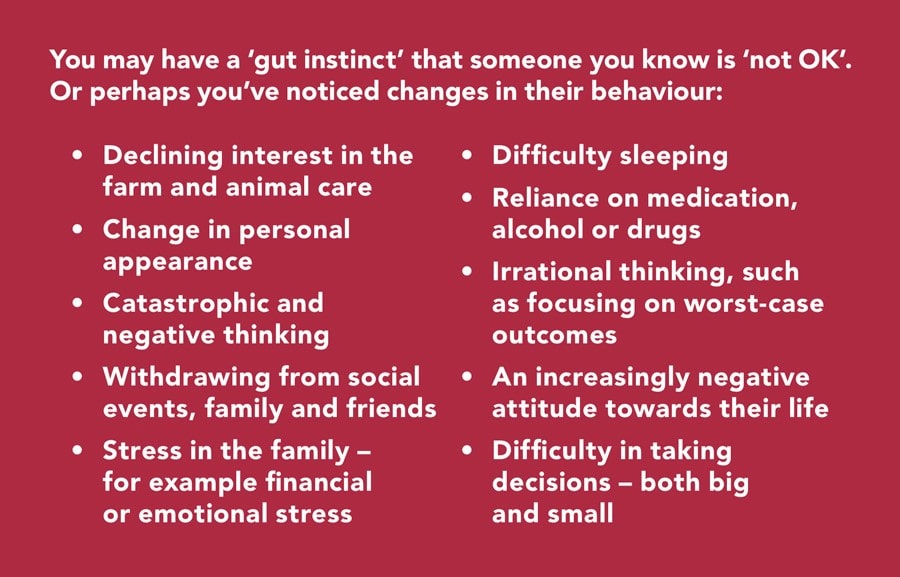
The Farm Safety Partnership has sent out a reminder to farming families, to educate children on the potential risks and keep them safe.
There are links to educational resources from the HSE and HSE Northern Ireland website.
A Guide for Parents - YellowWellies.org
On the LKL website, we have also produced a Children on Farm risk assessment template which can be downloaded and used to inform you of the hazards you will want to control and minimise.
Farms are not playgrounds. Keep a secure, fenced garden area for children to play.
Remember, children are inquisitive, so keep dangerous areas secured with fencing, padlocked doors and gates, netting, grids and cover. Dangerous areas include:
Keep children away from yards and areas of vehicle movements and make sure that they are supervised at all times on the farm.
Make sure all staff are aware if children are around and authorise them to stop working so they can guide children to a safe place with a responsible adult should they wander into a hazardous area unsupervised.
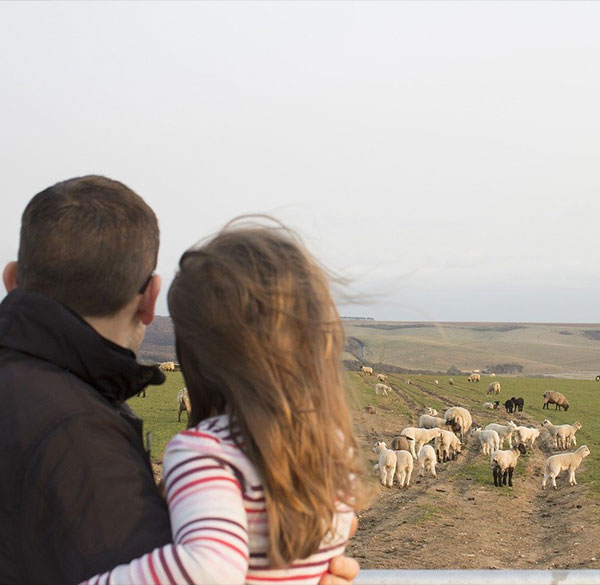
LKL supports the Farm Safety Partnership who for the next quarter will be focusing on promoting safety messages covering transport safety risks.
This month the reminder to all farmers is to follow the Safe Stop procedure
Follow Safe Stop




When to follow Safe Stop:
Here at LKL, we love this novel keyring idea. Maybe you could get some made for your own vehicle keys?

Sit astride ATVs are not fitted with a cab or roll bar and so head protection is vital. Many UK fatalities involving ATVs have been as a result of drivers not wearing head protection.
The type of helmets that should be worn include motorcycle helmets, mountaineering helmets and specialist ATV helmets. They should have a chin strap and be capable of being worn with goggles.
Forestry helmets or hard hats are not suitable.
Check out our Quad Bike section on our Health & Safety pages for more information.
NFU is offering a member discount offer of 25% off all Spada helmets - find out more and take up the offer here.
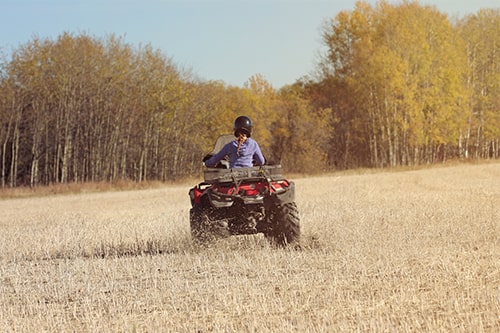
The Farm Safety Partnership (FSP) is promoting a Safe Working at Height message throughout October to December.
During these months a lot of farm maintenance is carried out and last year there were seven fatalities from falls at height whilst carrying out these types of jobs. In addition, there were a large number of injuries, some of which may have been life-changing.
Read the complete document here for questions to ask yourself before working at height.

Find your next farm job through LKL. Our network of field-based managers, supported by a small team of specialists based at our Salisbury headquarters, are responsible for maintaining regular contact with farm owners and managers.



